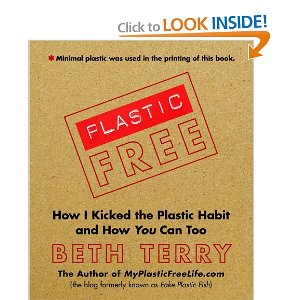 The Australian Go Tap campaign offers some stark facts, some of which may surprise you. It’s probably not surprising, though, to learn that Australians spend over half a billion dollars per year on bottled water when you think of the volume of people you see in the gym, on the street and in cafes with bottles in hand.
The Australian Go Tap campaign offers some stark facts, some of which may surprise you. It’s probably not surprising, though, to learn that Australians spend over half a billion dollars per year on bottled water when you think of the volume of people you see in the gym, on the street and in cafes with bottles in hand.
I confess to have purchased bottled water when out and about – it’s convenient and healthy, right? After all, at least I’m not strolling about with a bottle of cola.
However, the annual use of bottled water ends up generating over 60,000 tonnes of greenhouse gas emissions, with 373 million plastic bottles ending up as waste in Australia alone. Sixty thousand tonnes of greenhouse gas is the equivalent of running 13,000 cars each year.
Fortunately, more and more consumers are taking an interest in reducing their personal contribution to this problem, concerned not only about the physical waste that these bottles leave behind but also their individual carbon footprints. A great deal of energy is needed to manufacture and distribute all those bottles – ironically it takes up to 3 litres of water to make one litre of bottled water.
As the numbers continue to rise there is a clear need for alternatives to bottled water to become more mainstream, which should be possible now with more convenient portable containers and filtration systems on the market.
Need filtered water at home?
There’s an array of products out there for those who want a clean alternative to tap water at home.
The most basic option is a filtered jug or pitcher that you fill from the tap and leave in the refrigerator. These provide a cost-effective solution for having filtered water at home, but can be slightly time-consuming as they need to be refilled many times a week depending on how much water you drink. They also require regular cleaning and may need to be replaced over time as the filtration system deteriorates.
Other methods for home water filtration include faucet filters, such as the PUR system, which attach to and deliver filtered water straight from the tap.
The upside to these is that the filtration process is instantaneous and continuous, so you can have filtered water whenever you want. However, with this convenience come the added costs of purchase and installation, as well as potential problems such as the attachment leaking, cracking or being pushed off the tap every time the water is turned on!
Home water dispensers are a fancy new alternative on the market, attaching directly to your water mains and instantly giving you pristine and pure chilled or boiling water at the touch of a button.
They offer all the benefits of a faucet attachment with the added reliability of a filter jug, making them the most cost-effective and time-saving product available – especially if you drink a lot of tea or coffee!
Want water on the go?
![CamelBak water bottle. Image by Kenyon [Public domain], via Wikimedia Commons Blue CamelBak water bottle. Image by Kenyon [Public domain], via Wikimedia Commons](https://sustainablesuburbia.net/wp-content/uploads/2012/08/128px-CamelBak_water_bottle.jpg) If you’ve tossed your portable water bottle back in the kitchen cabinet due to its clunky design, it’s time to take a look at the new models on the market.
If you’ve tossed your portable water bottle back in the kitchen cabinet due to its clunky design, it’s time to take a look at the new models on the market.
Today’s reusable bottles are sleek and stylish, perhaps trying to capitalize on the original cachet that brands like Evian had in the 1990’s before the bottled water craze began. Look for models made from stainless steel or BPA-free plastics.
Some of the best designs feature drinking spouts or hinged caps, perfect for drinking whilst running or cycling. Other bottles like the Hydros even have their own built-in filter, so you can breathe a little easier about filling your bottle from a public water fountain.
Love the fizz of sparkling water?
Consider buying a Soda Stream or other home carbonation system. Perfect for kids, particularly if you forego the powdered sugary flavours and let them mix fizzy water with fresh squeezed juice instead for a healthier treat.
With so many alternatives available, there’s really no excuse anymore for buying bottled water – you’ll save loads of money in the long run and will be playing your part in reducing your carbon footprint and making the world a greener place.
Robbie Reddy is a guest author writing on behalf of Bibo Water, a new generation of home water dispensers that provide pure, filtered water straight from the mains and act as an environmentally friendly instant boiling water tap.
Editor’s note: Here’s another good reason for drinking water from your tap (whether you choose to filter it or not): Although the International Bottled Water Association denies that bottled water competes with tap water, the fact is that when we spend our money buying products from the likes of Coca-Cola, Pepsi, and Nestlé, we’re diverting money that could be used on public water infrastructures to ensure everyone has access to cheap, clean drinking water. See Plastic Free for more on how this works.
If you need some more inspiration for giving up your disposable plastic drink bottles, check out this inspiring TED video from Beth Terry:
Healthy Family | Healthy World


